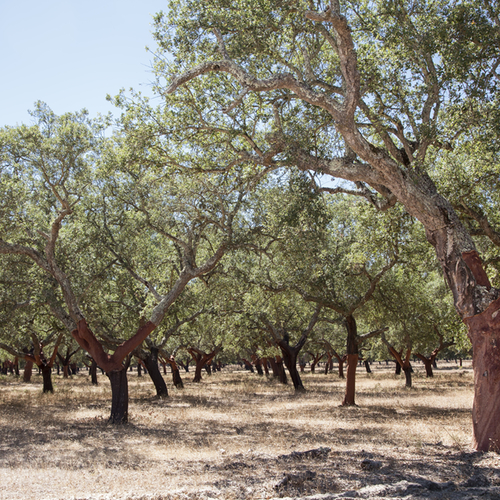
Corkwood tree
Scientific names: Duboisia myoporoides
Family: Solanaceae
Alternate names: Boacouillo, Boanco, Palo Corcho, Pituri
Background
Corkwood tree (Duboisia myoporoides) is native to Australia. It's grown as a source of certain chemicals, including scopolamine and atropine, which are used as drugs.
The chemicals in corkwood tree can affect the central nervous system and cause serious side effects. The cured and rolled leaves (quids) are sometimes chewed.
People use corkwood tree quids for hunger, pain, tiredness, and other conditions, but there is no good scientific evidence to support these uses. It might also be unsafe.
Don't confuse corkwood tree with phellodendron, which is sometimes called cork tree. These are not the same.
The chemicals in corkwood tree can affect the central nervous system and cause serious side effects. The cured and rolled leaves (quids) are sometimes chewed.
People use corkwood tree quids for hunger, pain, tiredness, and other conditions, but there is no good scientific evidence to support these uses. It might also be unsafe.
Don't confuse corkwood tree with phellodendron, which is sometimes called cork tree. These are not the same.
Safety Safety definitions
When taken by mouth: Corkwood tree is likely unsafe. It contains chemicals that can cause many serious side effects, including convulsions, coma, and death.
Special Precautions & Warnings:
Pregnancy and breast-feeding: It's likely unsafe for anyone, including those pregnant or breast-feeding, to take corkwood tree. Avoid use.Effectiveness
Effective Effectiveness definitions
There is interest in using corkwood tree for a number of purposes, but there isn't enough reliable information to say whether it might be helpful.
Dosing & administration
There isn't enough reliable information to know what an appropriate dose of corkwood tree might be. It's also likely unsafe. Speak with a healthcare provider before use.
Interactions with pharmaceuticals
Drying medications (Anticholinergic drugs)
Interaction Rating=Moderate Be cautious with this combination.
Corkwood tree can block a chemical in the body called acetylcholine, which has many important functions. Some medications, called anticholinergic drugs, also block acetylcholine. There is some concern that taking them together might increase the risk for confusion, blurred vision, decreased sweating, and increased heart rate.
Interactions with herbs & supplements
Herbs that affect the brain and heart (anticholinergic herbs): Corkwood tree might block a chemical in the body called acetylcholine. Acetylcholine plays a big part in many important body functions. There is some concern that taking corkwood tree along with other supplements with similar effects might cause increase the risk for blurred vision, confusion, increased sweating, and increased heart rate.
Examples of supplements with this effect include angel's trumpet, belladonna, bitter yam, jimson weed, and scopolia.
Interactions with foods
There are no known interactions with foods.
vital.ly has licensed monographs from TRC Healthcare.
This monograph was last reviewed on 16/11/2023 11:00:00 and last updated on 01/03/2022 08:21:10. Monographs are reviewed and/or updated multiple times per month and at least once per year.
Natural Medicines disclaims any responsibility related to medical consequences of using any medical product. Effort is made to ensure that the information contained in this monograph is accurate at the time it was published. Consumers and medical professionals who consult this monograph are cautioned that any medical or product related decision is the sole responsibility of the consumer and/or the health care professional. A legal License Agreement sets limitations on downloading, storing, or printing content from this Database. No reproduction of this monograph or any content from this Database is permitted without written permission from the publisher. It is unlawful to download, store, or distribute content from this site.




